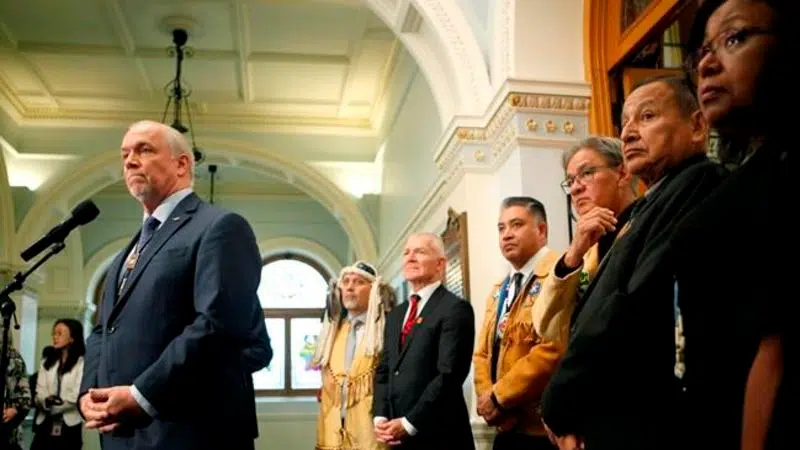
B.C. introduces law to implement United Nations declaration on Indigenous rights
VICTORIA — British Columbia has become the first province in Canada to introduce legislation to implement the United Nations Declaration on the Rights of Indigenous Peoples, mandating the government to bring its laws and policies into harmony with the principles of the declaration.
The legislation does not set a timeline for achieving its goals, but the minister of Indigenous relations and reconciliation said the bill “is about ending discrimination and conflict in our province, and instead ensuring more economic justice and fairness.”
“Let’s make history,” Scott Fraser told the legislature Thursday.
Fraser said the legislation is modelled on a federal bill that died on the Senate order paper when Parliament adjourned for Monday’s election.
